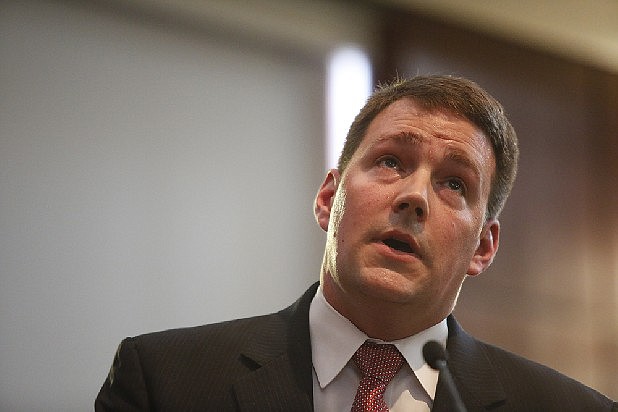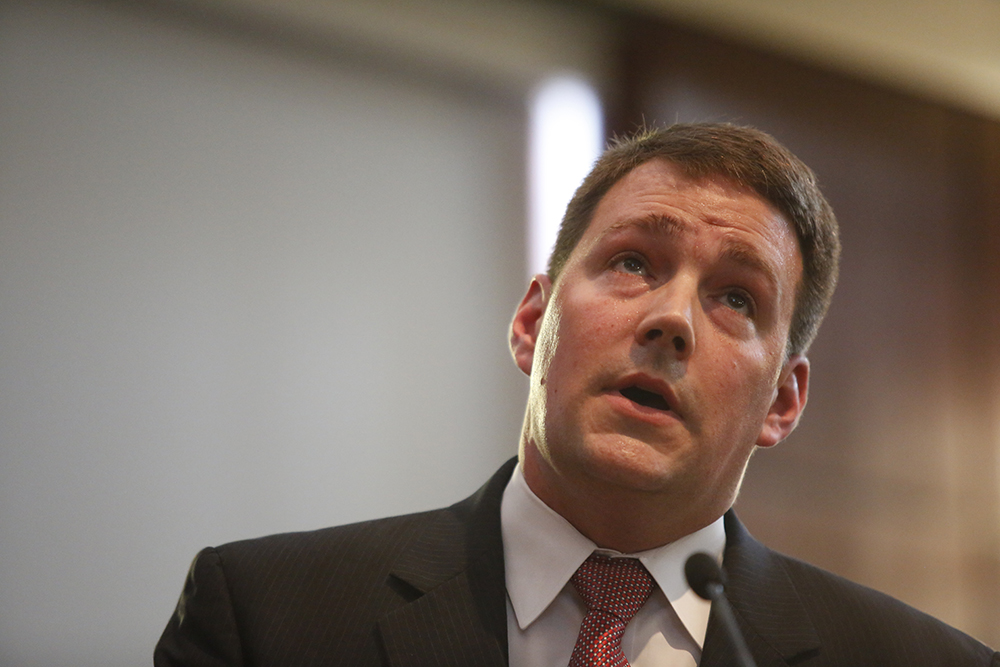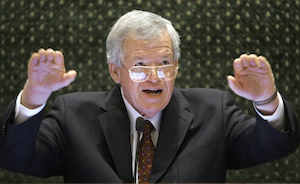Crackdown begins: 1 in 3 haven't paid Chattanooga sewer bills, face water shutoff
Thursday, June 26, 2014
IF YOUR WATER IS SHUT OFF• Call 311 or make arrangements directly with ENCO before 3 p.m. and service will be restored the same day.BY THE NUMBERS• Delinquent city: 1 in 3 residents, or 57,000 of the city's 170,000 residents and businesses who use sewer service, were delinquent on their sewer bill as of April.• EPA mandate: The $2.7 million in delinquent sewer fees go toward paying for Chattanooga's federally-mandated $250 million fix of its antiquated sewer system.• Bill crunch: 135 customers each owed more than $1,000 in late payments on Monday. More than half paid after the city began shutting off water service on Tuesday.• On hold: Wait times in excess of 13 minutes were common at the city's 311 help desk as ratepayers called in to pay their bill.Source: City of Chattanooga
Panicked callers clogged Chattanooga's 311 help lines on Tuesday after the city announced a crackdown on the approximately one in three ratepayers who haven't paid their sewer bills.
More than 57,000 of the city's 170,000 residential and business customers are delinquent on sewer payments, totaling more than $2.7 million in unpaid bills as of April, officials said. The total includes 135 business and residential customers who each owe more than $1,000 in late sewer payments, though more than half of them paid up on Tuesday after the city began shutting off their water.
The for-profit water company that refused to continue carrying the city's sewer fees on its water bills will benefit from the city's decision to act.
Tennessee American Water will collect a $15 fee for each disconnected customer, which could total $855,000 in new revenue for the current list of delinquents alone, as payment for its role in shutting off water service for residents and businesses, and for leaving a note on the door.
Today's ballooning bill backlog can be traced back to the city's takeover of sewer billing from Tennessee American Water in January 2013. Signing a contract with California-based ENCO to perform third-party billing duties, the city publicly promised not to shut off water for nonpaying customers until it worked the kinks out of its billing system.
Instead of the carrot-and-stick approach employed by most utilities, in which ignoring polite reminders leads to services being terminated, Chattanooga relied on robocalls and letters alone to convince residents and businesses to pay up.
"For most people, especially the ones who owe more than $1,000, they've had at least five phone calls total between robocalls and human calls," said Brent Goldberg, deputy chief operating officer at the city. "The billing company sent some letters, then we've had media coverage, too."
But that wasn't enough to motivate residents to pay.
"There hasn't been any incentive to pay," Goldberg said. "The fact that there has been no service disruption is one reason."
The absence of any consequence for residents and businesses that ignored notices to pay their sewer fees was compounded by letters arriving from the city of Chattanooga that required ratepayers to send their checks to California. Residents complained that bills sometimes arrived just days before they were due, and required extra fees for payments made online or over the phone.
"The same thing happened to my grandmother," Goldberg said. "She was calling me and asking me why she was getting this thing in the mail. There are legitimately people who didn't understand it was not on their water bill anymore."
Still others are simply behind on the bill and don't have the ability to pay. For those who truly struggle, the city has made available a nine-month payment plan that, provided ratepayers stay current, allows them to pay off the backlog without a service interruption.
Stuck with antiquated software that requires obsolete versions of Internet Explorer to run, a California contractor that confuses some customers and takes $1.42 of every bill for its fees, and a lack of any credible enforcement mechanism, the city decided that it's time to start over.
Officials plan to do more than just upgrade their software from a 20-year-old program that some residents can't access because their computers are too modern. With the second in five planned 9.8 percent sewer rate increases set to take effect in October, it's more critical than ever to collect on overdue bills.
"This is after numerous attempts on people's bills to let them know the amount that was overdue as well as phone calls," said Lacie Stone, director of communication for the city.
Once officials have shut off water or received payment for the remaining residents and businesses that owe more than $1,000, they will move on to those who owe less than $1,000. That process starts July 7, at a rate of between 200 and 250 ratepayers per week until all 57,000 are paid in full.
Contact staff writer Ellis Smith at 423-757-6315 or esmith@timesfreepress.com with tips and documents.


